Preface
Most homes in the United States have one or two appliances that rely on natural gas to produce warm air or water, but its use still requires caution. To protect your family and friends from the harmful symptoms of a gas leak, it’s important to be familiar with the causes of leaks and how to prevent them. Since a gas leak may be deadly, do not attempt to fix a crack or hole in your gas line without a licensed plumber or HVAC technician.

What you should know is that the human nose is not a very good diagnostic tool for all types of combustible gas, particularly gases without a scent. Some people are sensitive to odors while others can't smell anything, but neither of them can be sure if the gases they are smelling are flammable or explosive.
Leakage of gas is prevalent these days, potential hazards from gas leaks can include explosions, large fires, and the risk of suffocation, either from smoke inhalation or carbon monoxide poisoning that can result from improperly burned gas, several people die every year due to gas leaks.
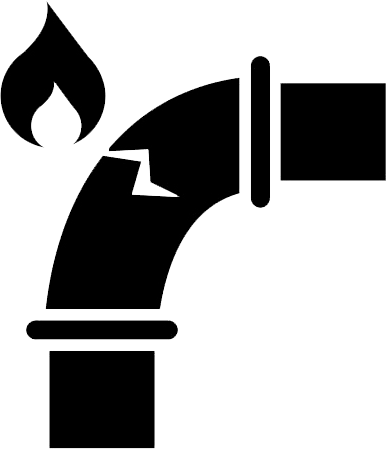
How to Check a Gas Leak from the Gas Stove?
There are multiple signs by which you can understand whether there is a gas leak from the gas stove or not. The main sign is that, before distributing the natural gas to the homes, the gas starts to mix up with a powerful smell and odor, known as a sulfur compound. The smell of this compound is the same as rotten eggs. If a person smells sulfur or rotten eggs or hears the hissing of escaping gas, inside or outside a building. It may be caused by a gas leak.
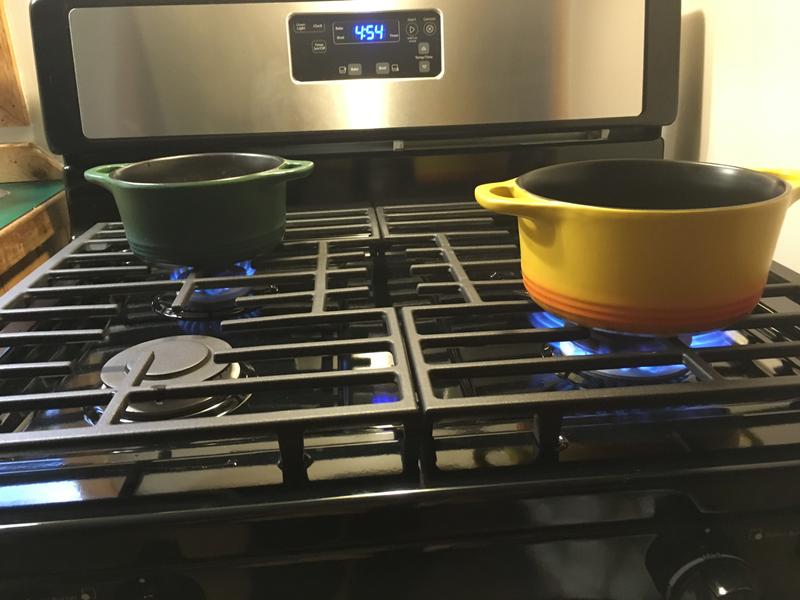
If there is a natural gas leak from the gas stove, you might not know about it in the beginning. That’s the reason why a gas leak from a gas stove can be very dangerous.
You can confirm or debunk a potential gas leak with the following tactics:
1. Listen for a hiss or whistling noise
Stop moving for a minute and focus on what you can hear. If you know where the gas line is, try to identify if it’s emitting any sort of noise. It’s not always the case that the gas is moving through a confined space, so don’t rely on this sound exclusively to determine the presence of a leak.
2. Check the gas stove or gas range top
When you turn on the burner, the gas stove emits a blue flame, which means that there is enough oxygen in the gas to burn the gas. However, if you see an orange, yellow, or red flame instead of a blue flame, it warns you that the stove is not burning properly and may be emitting dangerous levels of carbon monoxide gas (CO).

3. Try the soapy water test
To mix a concentrated solution of a teaspoon of dish detergent with one cup of water. Apply it to wherever you suspect a leak, like a connection or a juncture, and look for bubbles to form that indicate escaping gas.
Soapy water may also work but can cause your gas fittings to corrode, so we encourage you to utilize a gas leak detector instead.

4. Use a natural gas leak detector
The surest way to find a gas leak is to use a natural gas leak detector. There are plenty of options out there, and you can read about our recommendations for the best gas leak detectors.
Before the HVAC service technician arrives, you can pick up a combustible gas leak detector to determine the source of the leak, then ventilate the house and turn off the gas to the gas meter. It's a smart idea to keep a flammable gas leak detector on hand at home.
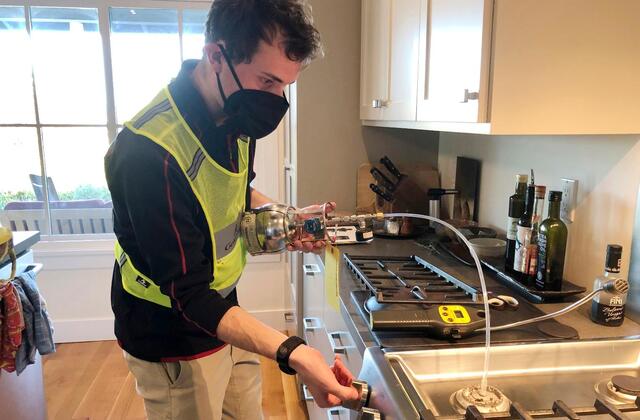
If you don't have a gas detector ready, click here to get yours.
If you don’t know how to do this, make sure to call a certified plumber or HVAC technician in your area for immediate assistance.
How to Check a Gas Leak from the Water Heater?
In most cases, your nose will lead the way. If you smell anything resembling sulfur or rotten eggs near the water heater, it may be caused by a gas leak, you need to take action quickly. It’s still smart to turn off the pilot light on your gas stove, gas furnace, or gas water heater, open the windows, and get the folks who could be in danger out of harm’s way.
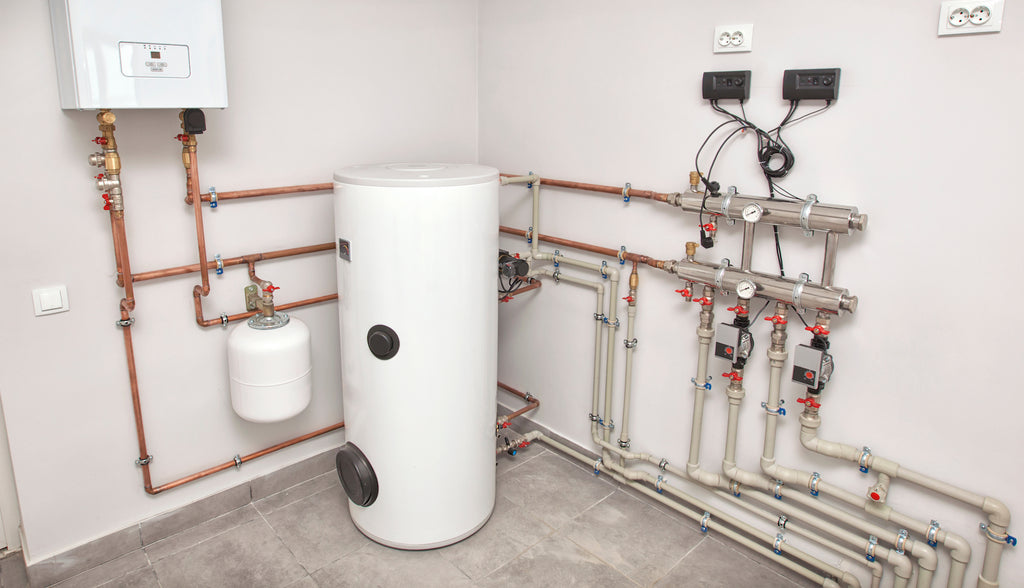
In addition to an overpowering sulfur smell, there are a few other signs you might be experiencing a gas leak.
- A hissing or whistling sound
- Bubbles, dust, or a “cloud” in standing water
- Visible damage to a gas line connection
- House plants that suddenly die
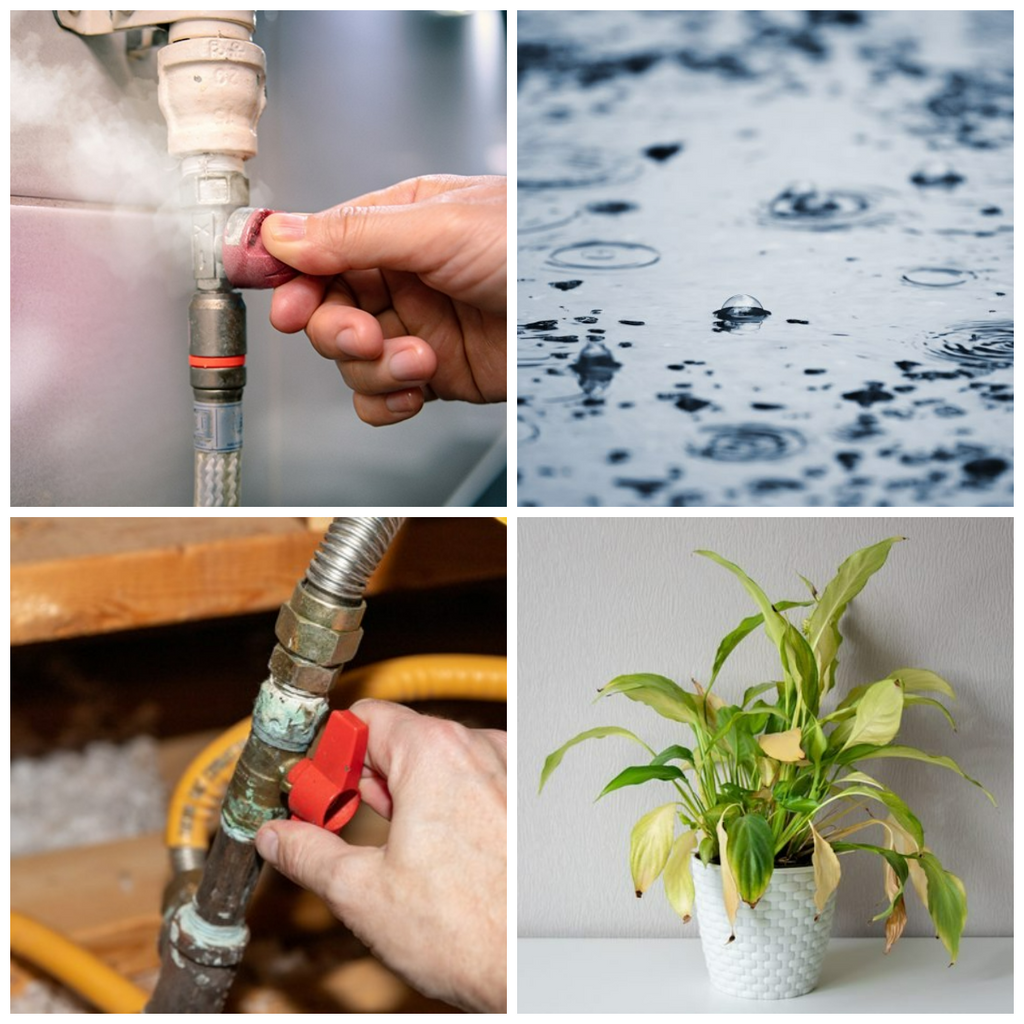
Our natural gas leak detectors can help you to find small cracks in the loose or aged seals connections of the natural gas line. Many HVAC service technicians recommend that every home should have a combustible gas leak detector available for regular gas leak checks. It saves the most time and money when you check out the gas leak with your own equipment and then call an HVAC company to fix it.
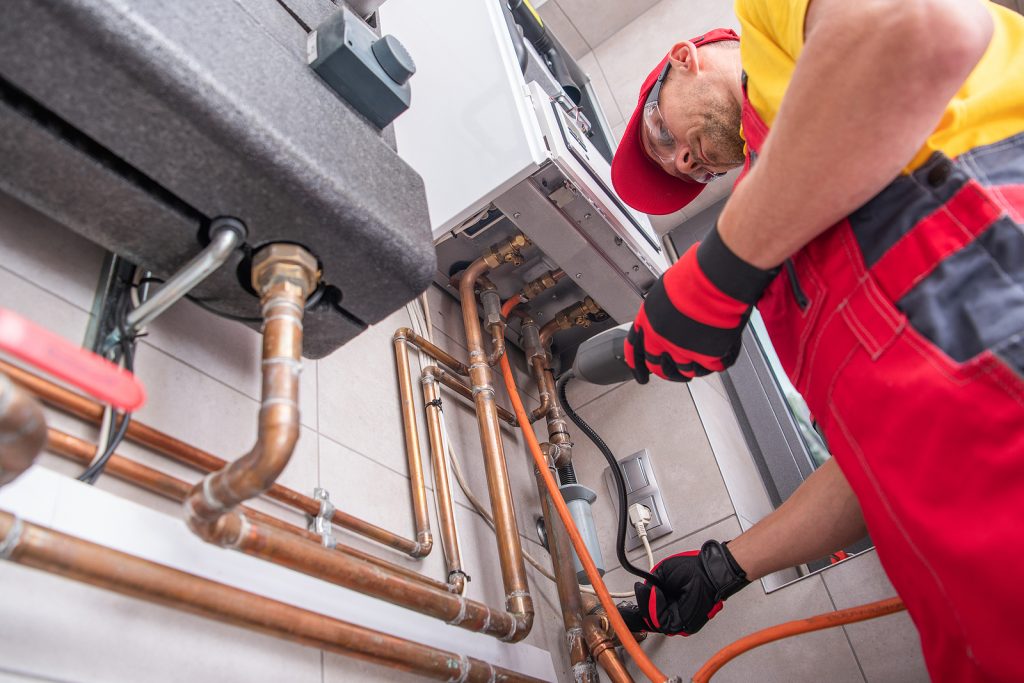
Common Reasons for a Gas Leak from the Water Heater
Losing out the Drain Valve:
One of the widespread causes of this water heater leak is the loss of the drain valve. If the water starts to appear leaking out from the valve, then this means gas must be leaking, and one should try to wrench it until or unless it snugs. If you don’t know how to do this, make sure to call the local HVAC for immediate assistance.
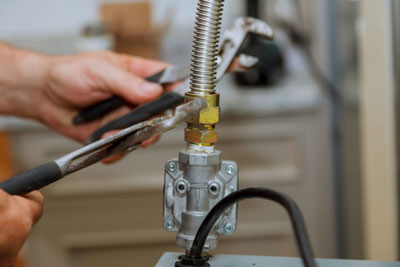
Too Much Pressure:
Sometimes there are reasons why the water heater starts to provide more pressure than it’s supposed to, which further causes the leakage. All of this can happen due to the water temperature being set on high, or even any of the external supply of water comes in at high pressure for the tank.
Cracks in the storage tank:
There are many water heaters that are being built by glass-lined storage tanks. With time, many of the natural minerals present in the water can calcify and then create out some deposits inside the tank of water. This is the reason that can cause some of the cracks in the glass lining and then cause the water heater to start leaking. Along with this, as water starts to heat up, it also expands. When there is an expansion on the heater’s glass lining, it can cause different cracks.
Some other common reasons:
Improper draining, loose fixtures, and the last reason is just the age. It can become some of the common reasons why the water heater starts to leak.
How Dangerous is a Gas Leak from Your Home?
Natural gas is an odorless, gaseous mixture of hydrocarbons—predominantly made up of methane (CH4). High levels of methane can reduce the amount of oxygen breathed into the air. This can result in mood changes, slurred speech, vision problems, memory loss, nausea, vomiting, facial flushing, and headache. In severe cases, there may be changes in breathing and heart rate, balance problems, numbness, and unconsciousness.
Potential hazards from gas leaks can include explosions, large fires, and the risk of suffocation, either from smoke inhalation or carbon monoxide poisoning that can result from improperly burned gas.
Conclusion
A gas leak from the gas stove/water heater is not an issue you can ignore, therefore, you need to take action as soon as possible. Weekly inspections with natural gas leak detectors can help reduce the risk of combustible gas explosions. You should have a complete check on the gas stove/water heater to ensure there’s no gas leak from it. As discussed above, the gas leak from the gas stove/water heater can have very negative consequences. It can kill quickly, so you should be completely aware that there can be awful symptoms or results of the gas leak from the gas stove/water heater. It needs to be stopped as soon as possible to make sure things are working correctly and accurately.

